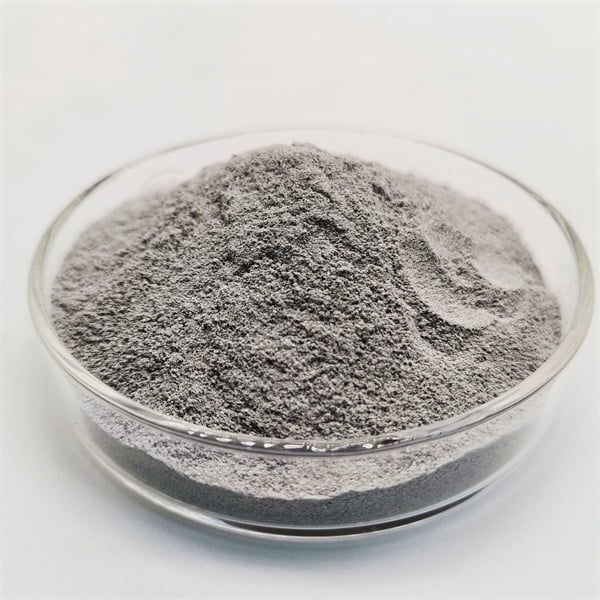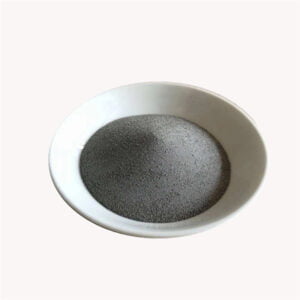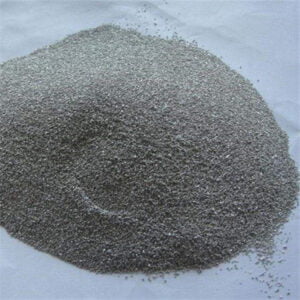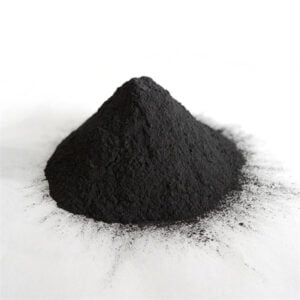Molybdenum Powder
Molybdenum powder is a refractory metal powder made from molybdenum metal. It offers high temperature strength, corrosion resistance, thermal conductivity, and lubricity.
Low MOQ
Provide low minimum order quantity to meet different needs.
OEM & ODM
Provide customized products and design services to meet unique customer needs.
Adequate Stock
Ensure fast order processing and provide reliable and efficient service.
Customer Satisfaction
Provide high quality products with customer satisfaction at the core.
share this product
Table of Contents
Overview of Molybdenum Powder
Molybdenum is a silvery-white refractory transition metal with very high melting point, excellent corrosion resistance, and good thermal/electrical conductivity. In powder form, it exhibits high strength at elevated temperatures along with stability in harsh environments.
Key properties of molybdenum powder include:
- High temperature strength and creep resistance
- Excellent corrosion resistance
- Good thermal and electrical conductivity
- Low thermal expansion coefficient
- High hardness and wear resistance
- Good lubricity in sulfide atmospheres
- Available in various particle size distributions
Molybdenum powder is used where its heat resistance, corrosion resistance, conductivity, and lubricity can be utilized. Major applications include alloying, electronics, coatings, welding, and specialty metals fabrication.
Composition of Molybdenum Powder
Molybdenum powder has the following typical composition:
| Element | Purity |
|---|---|
| Molybdenum (Mo) | 99% min |
| Oxygen (O) | 0.01-0.5% |
| Carbon (C) | 0.01-0.1% |
| Iron (Fe) | 0.2-2% |
| Copper (Cu) | 0.1-0.5% |
| Silicon (Si) | 0.05-1% |
| Tungsten (W) | 0.1-1% |
| Sulfur (S) | 0.01-0.1% |
High purity grades contain over 99% molybdenum with low impurity levels. Commercial powders have higher permissible impurities.
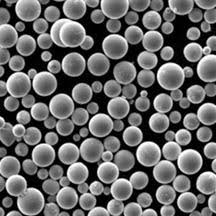
Properties of Molybdenum Powder
Molybdenum powder exhibits the following properties:
| Property | Value |
|---|---|
| Density | 10.22 g/cm3 |
| Melting Point | 2623°C |
| Thermal Conductivity | 138 W/m∙K |
| Electrical Resistivity | 5.5 μΩ∙cm |
| Young’s Modulus | 324 GPa |
| Poisson’s Ratio | 0.31 |
| Tensile Strength | 350 MPa |
| Yield Strength | 220 MPa |
| Elongation | 20% |
| Vickers Hardness | 200 HV |
Molybdenum offers very high melting point, strength at elevated temperatures, good thermal/electrical conductivity, and low thermal expansion.
Production Methods for Molybdenum Powder
Molybdenum powder can be produced by methods like:
- Hydrogen Reduction – Molybdenum trioxide reduced with hydrogen gas to produce molybdenum powder.
- Thermal Decomposition – Heating molybdenum compounds like ammonium molybdate to form molybdenum oxide followed by hydrogen reduction.
- Electrolytic Production – Aqueous electrowinning from acidic molybdate solutions produces molybdenum powder deposit.
- Calciothermic Reduction – Reduction of molybdenum trioxide using calcium.
Hydrogen reduction is a common industrial method. The powder morphology, size and purity can be controlled.
Applications of Molybdenum Powder
Molybdenum powder has the following major applications:
- Alloying Addition – Added to stainless steels, nickel alloys, tool steels to enhance properties.
- Metal Coatings & Spraying – Thermal spray coatings, plating processes use molybdenum for wear/corrosion resistance.
- Electronics & Contacts – Used in circuitry, vacuum tubes, cathode ray tubes and electrical contacts.
- Welding – As filler material for stainless, high-nickel and refractory metal welding.
- Lubricants – Added to greases and oils to provide lubrication in high temperature sulfide environments.
- Pyrotechnics – Combined with other powders for pyrotechnic delay compositions requiring controlled burn rates.
Specifications of Molybdenum Powder
Molybdenum powder is available under various specifications:
- Purity Grades – From commercial purity to 99.999% ultra high purity grades.
- Particle Sizes – Ranging from 1 micron to 150 microns for different applications.
- Morphology – Irregular, spherical and nodular powder shapes are available.
- Surface Area – Low to high surface area powder grades.
- Oxygen Content – High purity, low oxygen powders for specialty applications.
Global Suppliers of Molybdenum Powder
Some of the major global molybdenum powder suppliers include:
- H.C. Starck (Germany)
- Molymet (USA)
- JDC Molybdenum (China)
- Exploiter Molybdenum (China)
- Plansee (Austria)
- Midwest Tungsten (USA)
These companies produce molybdenum powder grades using various methods at commercial to ultra high purity levels.
Pricing of Molybdenum Powder
Molybdenum powder prices depend on factors like:
- Purity Grade – From $5/kg for commercial purity to over $500/kg for ultra high purity grades.
- Particle Size – Nanoscale and sub-micron powders are higher priced.
- Morphology – Spherical powders command premium over irregular grades.
- Quantity – Prices reduce for bulk quantities due to economy of scale.
- Manufacturer – Major global suppliers offer competitive pricing.
- Geography – Prices vary in different world regions.
Storage and Handling of Molybdenum Powder
Molybdenum powder requires controlled storage and handling:
- Prevent exposure to air and moisture to minimize oxidation.
- Avoid dust accumulation and ignition hazards from fine powders.
- Use appropriate ventilation and respiratory protection when handling.
- Follow precautions in Safety Data Sheet from supplier.
- Store sealed containers in a cool, dry place away from incompatibles.
Proper grounding, inert gas blanketing, PPE should be used when handling molybdenum powder.
Inspection and Testing of Molybdenum Powder
Typical inspections and tests carried out on molybdenum powder:
- Chemical Analysis – ICP and XRF techniques used to verify composition meets specifications.
- Particle Size – Laser diffraction analysis as per ASTM B822 standard.
- Morphology – SEM imaging used to determine particle shape and surface area.
- Specific Surface Area – BET gas absorption method used.
- Impurity Testing – ICP-MS used to quantify levels of oxygen, iron, copper, tungsten and other impurities.
- Powder Flow – Tested as per ASTM B213 standard using Hall flowmeter.
Comparison of Molybdenum and Tungsten Powders
Molybdenum and tungsten powders are two refractory metal powders compared:
| Parameter | Molybdenum | Tungsten |
|---|---|---|
| Density | 10.22 g/cm3 | 19.3 g/cm3 |
| Melting Point | 2623°C | 3422°C |
| Tensile Strength | 350 MPa | 350 MPa |
| Thermal Conductivity | 138 W/mK | 163 W/mK |
| Electrical Resistivity | 5.5 μΩ.cm | 5.5 μΩ.cm |
| Cost | Lower | Higher |
| Toxicity | Lower | Higher |
Molybdenum has lower density, melting point, and cost but offers similarly high strength and conductivity as tungsten.
Molybdenum Powder FAQs
Q: How is molybdenum powder produced?
A: Common industrial production methods for molybdenum powder include hydrogen reduction of molybdenum trioxide and thermal decomposition of molybdates followed by reduction.
Q: What is molybdenum powder used for?
A: Major applications of molybdenum powder include alloying, thermal spray coatings, electronics, welding, lubricants, pyrotechnics, and as a pure metal.
Q: What powder size is used for thermal spray coatings?
A: For most thermal spray processes, molybdenum powder is typically used in size ranges of 45-150 microns. Finer powder can be challenging to fully melt.
Q: Is molybdenum powder flammable or explosive?
A: Yes, like other finely divided metals, molybdenum powder can potentially be flammable or explosive. Proper precautions are needed for safe handling and storage.
Q: Where can I purchase high purity molybdenum powder?
A: Ultra high purity (99.999%) molybdenum powder can be purchased from major suppliers including H.C. Starck, Molymet, Plansee, and JDC Molybdenum.
Get Latest Price
About Met3DP
Product Category
HOT SALE
CONTACT US
Any questions? Send us message now! We’ll serve your request with a whole team after receiving your message.

Metal Powders for 3D Printing and Additive Manufacturing
COMPANY
PRODUCT
cONTACT INFO
- Qingdao City, Shandong, China
- [email protected]
- [email protected]
- +86 19116340731






